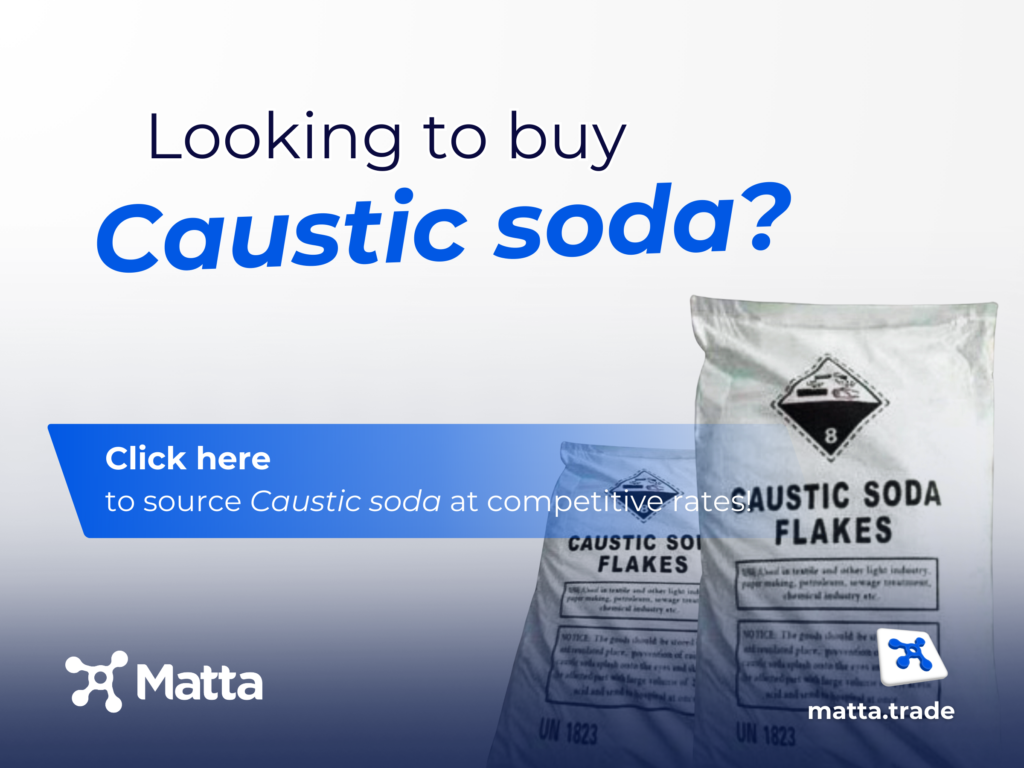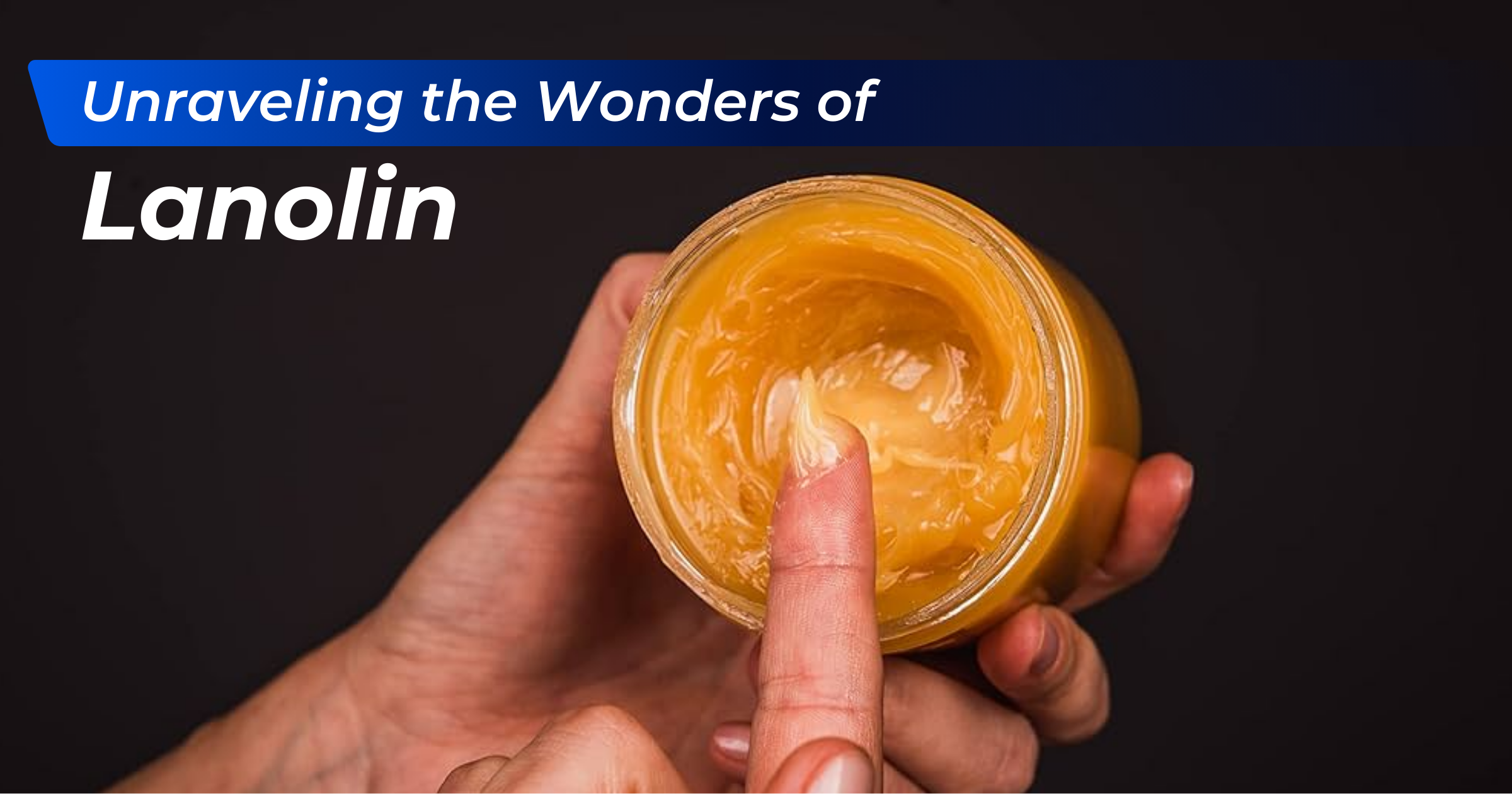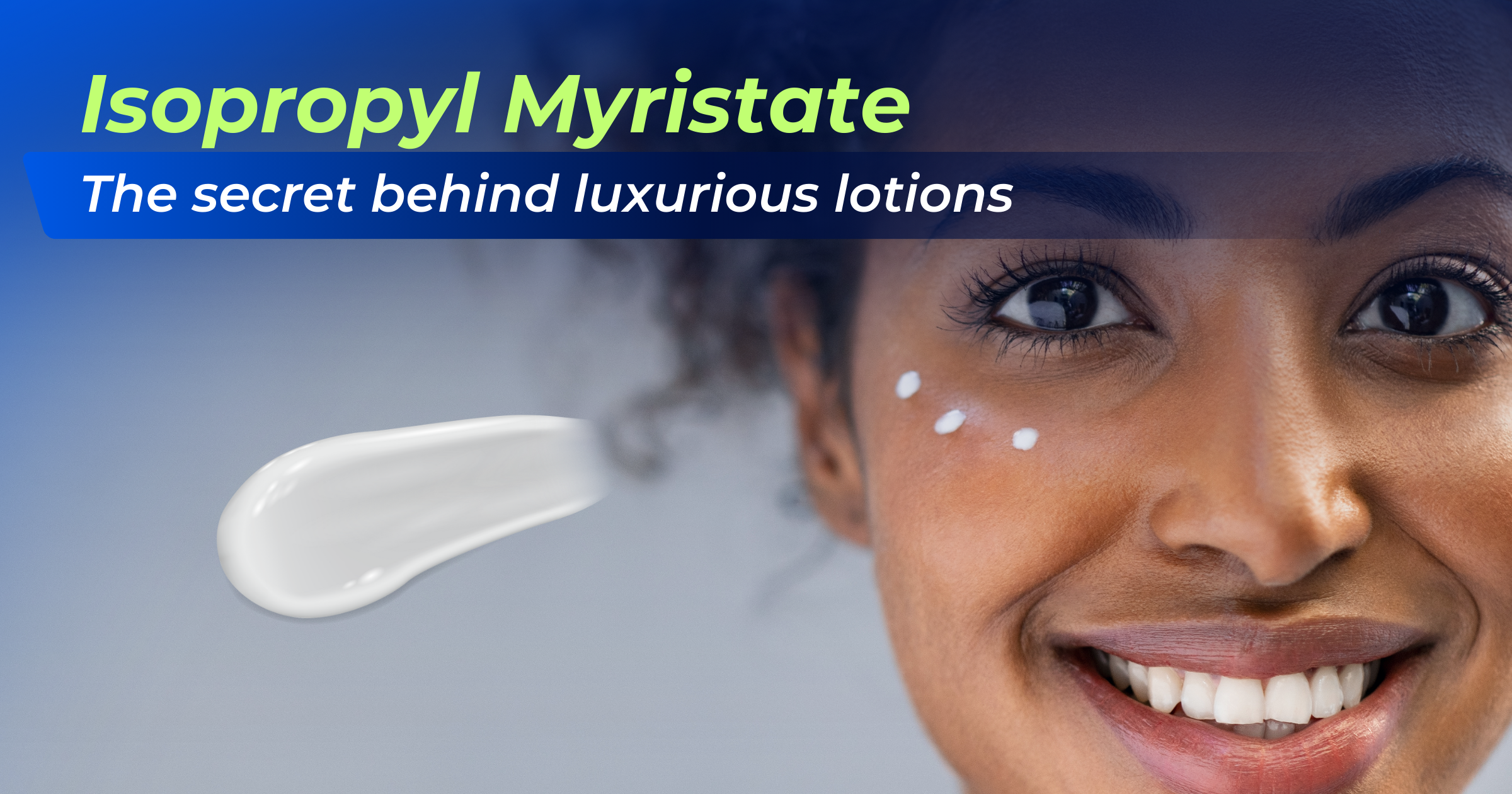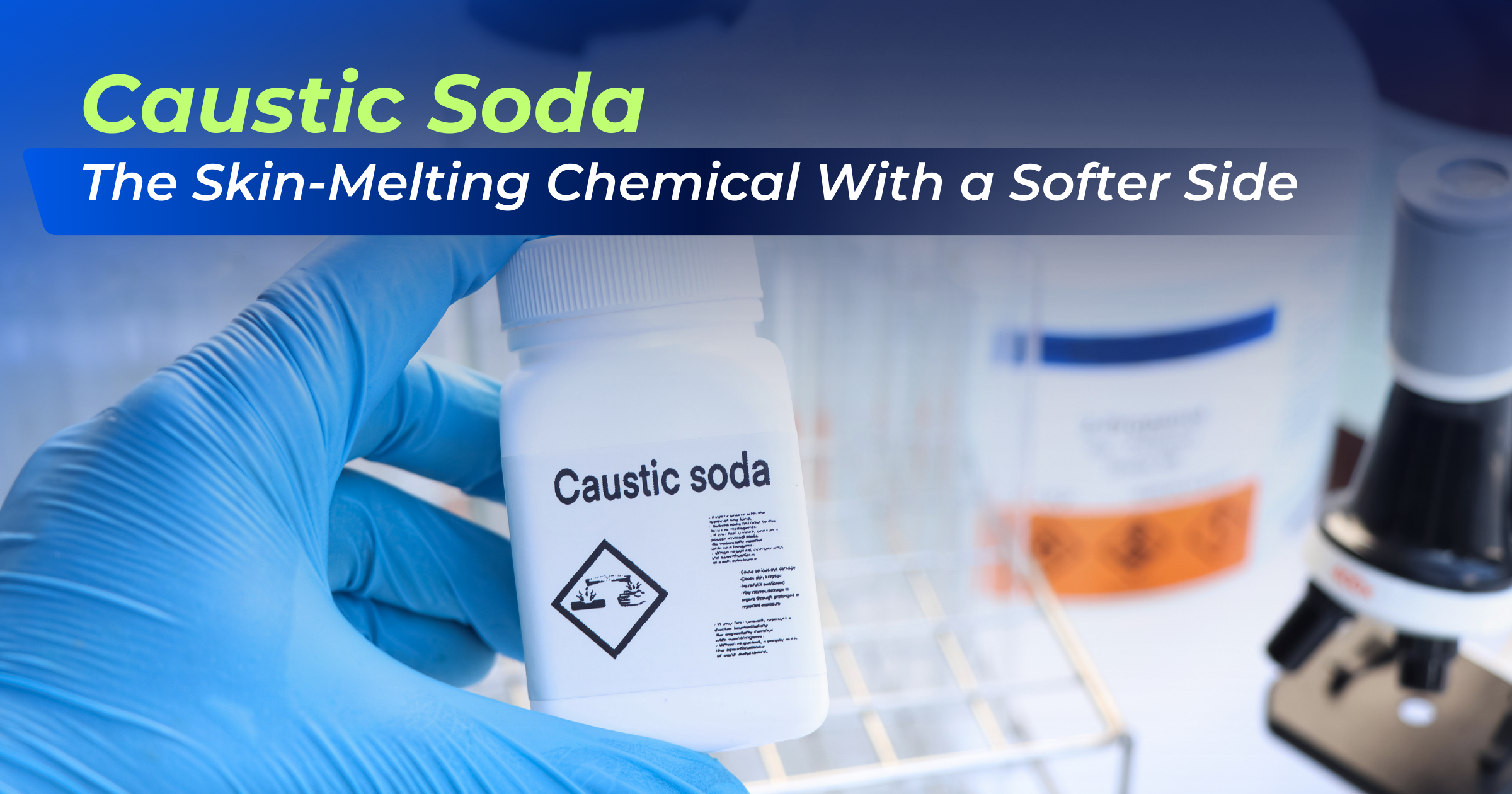In Nigeria’s diverse and culturally rich landscape, cleanliness is not just a chore; it’s a way of life. The importance of maintaining a clean home is universally acknowledged, from bustling cities like Lagos and Abuja to tranquil rural communities. Caustic Soda, A.K.A Sodium hydroxide (NaOH), is Nigeria’s cornerstone for household cleaning.
For decades, caustic soda has been deeply ingrained in the Nigerian household cleaning culture, serving as a multipurpose substance, found in different quantities, from local markets to modern supermarkets and stores.
However, the widespread use of caustic soda also brings several health and safety concerns to light. Its highly corrosive nature means that it can cause severe burns or cause poisonous accidents. This makes it a household essential and potential hazard.
This article aims to provide a comprehensive guide to understanding the role of caustic soda in Nigerian household cleaning, delving into its chemical properties, and health implications. Additionally, we’ll touch on the regulatory landscape governing its use and offer safety tips for households that rely on this potent cleaning agent.
The versatility of caustic Soda
Caustic soda is a strong alkali, making it highly effective in breaking down oils, fats, and organic compounds, which explains its widespread use in cleaning. But it’s not just about its efficacy; it’s also about accessibility and affordability. Caustic soda (or sodium hydroxide) is a wonder ingredient for cleaning agents. It is a versatile, effective, and indispensable option for cleaning agents.
What makes it so indispensable?
You see, caustic soda has this incredible ability to break down organic materials. This is why it is the go-to choice for tackling stubborn grime, grease, and even blockages in drains and pipes, working like magic.
But wait, there’s more!
Caustic soda isn’t just a one-trick pony. It’s also a fantastic descaler for appliances like dishwashers and washing machines, dissolving mineral build ups to ensure smooth operation.
It is also useful for industrial cleaning. Caustic soda offers a cost-effective solution to many cleaning challenges in a country where the average income can be limited.
In Nigeria, cleanliness transcends mere housekeeping; it’s deeply rooted in cultural beliefs and traditions. From the proverbial saying, “Cleanliness is next to godliness,” to meticulous grooming and personal hygiene, cleanliness is ‘universally’ acknowledged across various ethnic groups within Nigeria.
Popular Cleaning Solutions in Nigeria and Their Composition
Local Soap
Local Nigerian soaps combine caustic soda, palm oil, and water, offering versatile use for bathing, laundry, and cleaning. Additionally, some variations add ingredients like shea butter, herbs, or coconut oil for enhanced benefits. Meanwhile, commercial drain cleaners rely on high concentrations of caustic soda to dissolve grease and hair but require careful handling with gloves and proper ventilations.
Drain Cleaners
Oven cleaners combine caustic soda, solvents, and emulsifiers to break down grease and grime, making scrubbing easier. Like drain cleaners, they require proper ventilation and gloves due to sodium hydroxide risks.
Some toilet cleaners also include caustic soda for extra stain removal and disinfection, demanding careful handling. Floor cleaners, containing diluted sodium hydroxide with ammonia and surfactants, offer effective stain removal for general cleaning but are milder than other caustic soda-based products.
Always follow safety instructions to ensure proper use and avoid hazards.
Safety Measures and Best Practices for Using Caustic Soda.
Safety is paramount when dealing with substances like sodium hydroxide, a chemical as powerful as it is versatile. Using protective gear like chemical-resistant gloves and eye protection is crucial to ensure you’re harnessing its benefits without putting yourself at risk.
Working in a well-ventilated area is another must, as it helps disperse any harmful fumes that might be released. Now, let’s look into the details of safety measures.
Personal Protective Equipment (PPE)
Importance and Types
Using Personal Protective Equipment (PPE) is non-negotiable when handling caustic soda. This is not just a precaution but a necessity to prevent severe injuries. Basic PPE includes:
- Rubber Gloves: These should be made of materials resistant to chemical corrosion. Nitrile gloves are often recommended for their chemical resistance.
- Safety Goggles: Standard safety goggles provide a seal around the eyes, preventing accidental splashes from contacting the eyes.
- Face Shield: For industrial applications or when dealing with concentrated forms of caustic soda, a face shield offers an additional layer of protection.
- Chemical-Resistant Apron: This is especially important in industrial settings or when mixing large quantities, as it protects the torso and upper legs from splashes.
It’s crucial to regularly inspect your PPE for any signs of wear and tear. Any equipment showing signs of degradation should be replaced immediately to ensure optimal protection.
Storage Guidelines
Proper Storage Conditions and Containers
Caustic soda should be stored in a cool, dry place, ideally between 50-70°F (10-21°C). The storage area should be well-ventilated and away from acids, as mixing the two can result in a violent reaction.
Labeling and Child Safety
Always label the container clearly to avoid any confusion. If you have children or pets at home, consider using child-resistant caps and storing the container in a high, locked cupboard.
Emergency Contact Information
Keep emergency contact numbers, including poison control and medical emergency services, readily available in storage.
First Aid Measures
Skin Contact
If caustic soda comes into contact with the skin, immediately rinse the affected area with cold water for at least 15-20 minutes. Remove any contaminated clothing and seek medical attention as soon as possible.
Eye Contact
In case of eye contact, rinse immediately with plenty of cold water for at least 15-20 minutes, keeping the eyelids open. Seek emergency medical attention immediately.
Ingestion
If caustic soda is ingested, do not induce vomiting, as this can cause further damage to the esophagus and mouth. Instead, drink plenty of water to dilute the substance and seek emergency medical care immediately.
Inhalation
If you inhale sodium hydroxide fumes, immediately move to an area with fresh air. If breathing difficulties persist, seek medical attention right away.
Alternatives to Caustic Soda
In cases where caustic soda is not available or perhaps you are looking for variety, these are some options to consider.
Baking Soda (Sodium Bicarbonate)
Baking soda is a popular alternative for general cleaning and deodorizing tasks. It’s non-toxic and safe for both pets and children, making it a go-to option for many households. However, it’s worth noting that baking soda is less effective on tough stains and grease compared to caustic soda.
Vinegar (Acetic Acid)
Vinegar is another natural alternative that is excellent for disinfecting surfaces, removing mildew, and cutting through grease. It’s biodegradable and safe for most surfaces, but it does have a strong odor that some people find off-putting. Also, vinegar is less effective on alkaline stains, such as rust.
Hydrogen Peroxide
Hydrogen peroxide is a versatile cleaner that is effective for disinfecting, stain removal, and even bleaching. One of its key advantages is that it breaks down into water and oxygen, making it environmentally friendly. However, it can bleach colored fabrics and becomes less stable over time, especially when exposed to light.
Citric Acid
Citric acid is commonly used for descaling appliances, removing rust, and general cleaning tasks. It’s a natural and biodegradable option that comes with a pleasant citrus scent. However, it’s less effective on grease and can be more expensive than other alternatives.
Castile Soap
Castile soap is a plant-based soap that is biodegradable and gentle on the skin. It’s a versatile cleaner that can be used for everything from general cleaning to dishwashing and laundry. While it’s effective for many cleaning tasks, it’s less potent against tough grease and can sometimes leave a residue.
Borax (Sodium Borate)
Borax is another effective cleaner that serves as a laundry booster, general cleaner, and even as an insect control agent. It’s less corrosive than caustic soda but can be toxic if ingested, so it’s not recommended for households with pets.
Cornstarch
Cornstarch is an effective natural substance for cleaning windows, polishing furniture, and even carpet cleaning. It’s safe and inexpensive but is not suitable for heavy-duty cleaning tasks where a stronger agent like sodium hydroxide would be required.
Future Trends in Caustic Soda and Cleaning Agents in Nigeria
Several trends are reshaping the use of caustic soda and other cleaning agents. Environmental sustainability drives the shift toward eco-friendly alternatives like vinegar and baking soda. Technological advancements, such as nanotechnology, promise effective cleaning solutions with reduced chemical use.
Stricter regulations are also emerging as awareness of health risks grows, leading to better safety measures, labeling, and potential restrictions on harmful chemicals. Meanwhile, the digital transformation empowers consumers through online platforms, apps, and social media, promoting informed choices and safer cleaning practices.
As these trends evolve, the cleaning industry is likely to see a shift toward greener, safer, and more innovative products and solutions.
Conclusion
Caustic soda plays a vital role in various cleaning solutions, from soaps to industrial solvents, but its corrosive nature demands careful handling. Proper use of Personal Protective Equipment (PPE) and strict storage practices are essential for safety.
In Nigeria, limited regulations highlight the need for increased education and awareness. As we continue to rely on this powerful agent, it’s crucial to prioritize safety alongside effectiveness. For more insights and to join safety workshops, visit our website.
Frequently Asked Questions (FAQs)
What is caustic soda used for in cleaning?
It is a versatile cleaning agent used in various applications, from soap-making and drain cleaning to oven and floor cleaning. Its strong alkaline nature effectively breaks down oils, fats, and other organic matter.
Is caustic soda safe to use?
While sodium hydroxide is effective, it is highly corrosive and dangerous if improperly handled. Always use Personal Protective Equipment like gloves and goggles, and follow safety guidelines to mitigate risks.
Can I use caustic soda for unclogging drains?
Yes, caustic soda is commonly used in drain cleaners. However, following the manufacturer’s instructions and safety guidelines is crucial to avoid any accidents or damage to your plumbing.
How should I store caustic soda?
Caustic soda should be stored in a cool, dry container resistant to alkalis, such as certain types of plastic or glass. Make sure the container is tightly sealed to prevent moisture absorption.
What should I do if I get caustic soda on my skin?
Rinse the affected area immediately with plenty of cold water for at least 15-20 minutes and seek medical attention immediately.
Q: Can I mix caustic soda with other cleaning agents?
A: Mixing it with other chemicals, especially acids, can result in a violent reaction. Always read the labels of other cleaning products to ensure they are compatible before mixing.
Q: Is caustic soda environmentally friendly?
A: Caustic soda is not biodegradable and can harm aquatic life. It’s essential to dispose of it properly, following local disposal guidelines.
Q: Where can I buy caustic soda?
A: Caustic soda is widely available in Nigeria, from local markets to supermarkets and specialized stores. It’s often sold in small sachets for household use and in larger quantities for industrial applications.
Q: Can caustic soda damage metal surfaces?
A: Caustic soda can corrode and damage some metals like aluminum or brass, so it’s crucial to test a small area first before applying the solution to the entire surface. It’s also essential to rinse the surface thoroughly after cleaning to remove any residue that could cause further damage.





